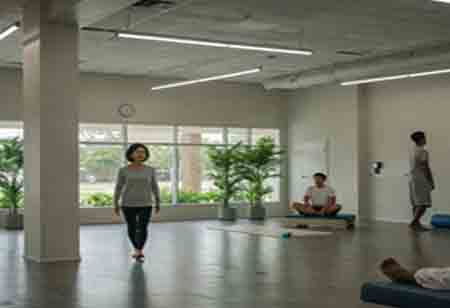Audiology Technology: Emerging Trends in Hearing Health
Hearing health professionals can deliver more effective, convenient, and customized solutions to individuals with hearing loss.

By
Medical Care Review | Friday, February 21, 2025
Stay on top of your health and well-being with exclusive feature stories on the top medical clinics and treatment centers, expert insights and the latest news delivered straight to your inbox. Subscribe today.
Fremont, CA: Advancements in audiology technology are revolutionizing hearing health, significantly improving the diagnosis, treatment, and management processes of hearing loss. The evolution of audiology technology has been driven by the need for enhanced solutions, resulting in the introduction of state-of-the-art devices and treatment alternatives that more effectively cater to hearing health requirements. Hearing aids play a pivotal role in this field, and recent developments have rendered them more efficient, user-friendly, and tailored to individual needs. Innovations such as directional microphones, noise reduction algorithms, and frequency modulation are designed to adapt to various auditory environments, improving speech clarity even in difficult listening situations.
Audiologists can conduct virtual consultations, perform hearing assessments, and adjust to hearing aids remotely. The approach expands access to audiological care and reduces the need for frequent in-person visits. Remote adjustments are another breakthrough, allowing audiologists to fine-tune hearing aids in real time through an app or web portal. Patients can have their devices calibrated from the comfort of their homes, saving time and making it easier to manage ongoing hearing needs. This integration of telehealth within audiology has increased the accessibility of hearing care, allowing patients to receive support from anywhere.
Many modern hearing aids utilize AI to adjust settings based on real-time environmental sounds and user interactions. For example, if a user frequently changes settings in noisy environments, the AI can recognize this pattern and make adjustments proactively. Recent advancements in cochlear implant technology have improved sound quality, reduced power consumption, and minimized invasiveness. Advanced models are now capable of better frequency resolution, which enhances the user’s ability to understand speech in noisy environments, a key challenge for many with profound hearing loss.
Cochlear implants have introduced wireless connectivity options, similar to hearing aids, allowing direct audio streaming from external devices. The convenience of mobile apps and digital tools encourages consistent engagement with hearing health, assisting users to stay proactive about managing their hearing needs. Researchers use VR simulations to replicate real-world sound environments for testing and training purposes. It allows audiologists to assess how individuals respond to different auditory scenarios, from quiet rooms to crowded spaces, making it possible to customize treatment and device settings based on real-world performance.
VR-based hearing rehabilitation has shown promise in helping individuals adapt to new hearing aids or cochlear implants, improving their comfort and confidence in various listening situations. Audiology technology fundamentally changes hearing health by expanding access to care, personalizing treatment, and improving device performance. The trends enhance the quality of life for those affected and highlight the potential for future breakthroughs that further enhance hearing care and accessibility on a global scale.







